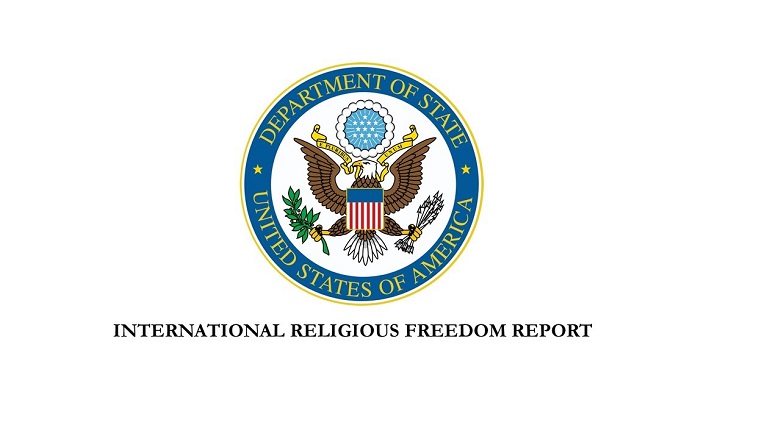Kurdistan welcomes US State Department report on religious freedom

ERBIL (Kurdistan 24) – The Kurdistan Regional Government (KRG) welcomed the US State Department's recent annual report on international religious freedom in which it commended the Kurdistan Region's continued efforts to respect and promote religious freedom for those of various faiths within its borders.
This was in stark contrast to the assessment in this year's report of areas in Iraq outside the Kurdistan Region and under the jurisdiction of the federal government in Baghdad, where it said that religious restrictions and both violence against and harassment of minorities was “widespread.”
Kurdistan Region
“KRG endeavors to protect and promote the values that are related to peaceful coexistence and communal integration,” read a statement by the KRG Office of the Coordinator for International Advocacy, which noted that each religious community's “legal, political, cultural, and economic rights” are preserved by law in the autonomous region.
In reference to the Yezidi (Ezidi) religious minority in particular, the State Department report said that the KRG “continued to actively support and fund the rescue of captured Yezidis and provide psychosocial support services at a center in Dohuk Province.”
Prior to the 2014 attack, there were roughly 550,000 Ezidis in the Kurdistan Region and Iraq. As the jihadist group took over large swaths of territory in Nineveh province, 360,000 Ezidis escaped and found refuge in the Kurdish Region elsewhere, according to the KRG's Ezidi Rescue Office.
“Followers of the Baha’i and Yezidi faiths reported that the KRG allowed them without interference or intimidation to observe their religious holidays and festivals,” the report also mentions.
The KRG “strives to actualize coexistence and prosperity in these areas for Yezidis, Christians and the other groups,” the KRG statement continued, noting that the regional government “observes the conditions of religious minorities in the disputed areas” such as Sinjar (Shingal), Kirkuk, and Khanaqin.
In August, Amb. Sam Brownback, US Ambassador at Large for International Religious Freedom, told Kurdistan 24, “The Kurds have been great, really, in a region that has been fraught with difficulty on religious freedom.”
Read More: US Envoy hails religious tolerance of Kurds, stresses need for Peshmerga, ISF security coordination
Religious freedom is “really, in a sense, a gateway freedom,” Brownback explained. “You get this one right, and there tends to be an expansion to a series of others.”
Iraq
“Restrictions on freedom of religion, as well as violence against and harassment of minority groups committed by government security forces, remained widespread outside the Iraqi Kurdistan Region,” as the State Department report described the situation in Iraq.
It was the first of many suggestions that, while the Kurdistan Region enjoyed religious pluralism, there is systematic discrimination in the rest of Iraq against non-Muslims, and specifically against those who are not Shia Muslims.
There are now less than 250,000 Christians remaining in Iraq, down from a population of 800,000 to 1.4 million in 2002. Of them, “at least 200,000” now live in the Nineveh Plain and the Kurdistan Region, which also hosts “approximately 2,000 registered members of evangelical Christian churches,” the report stated.
“There are fewer than six adult members in the Baghdad Jewish community, according to a local Jewish community leader,” it explained. However, in the Kurdistan Region, “there are 70 to 80 Jewish families, according to the Jewish representative in the KRG Ministry of Endowment and Religious Affairs (MERA).”
According to MERA, in the Kurdistan Region, there are also 60 families of Zoroastrians—the religion of Iran prior to the seventh century Muslim conquest of that country.
The 2020 report on Iraq released by the United States Commission on International Religious Freedom (USCIRF) wrote, “Many of the country’s smaller communities—such as Sabean-Mandaeans, Turkmen, Kak’ais, and Shabaks—have in recent years faced serious threats that cannot be easily defined as exclusively religious or ethnic.”
Editing by John J. Catherine
Laurie Mylroie contributed to this report
